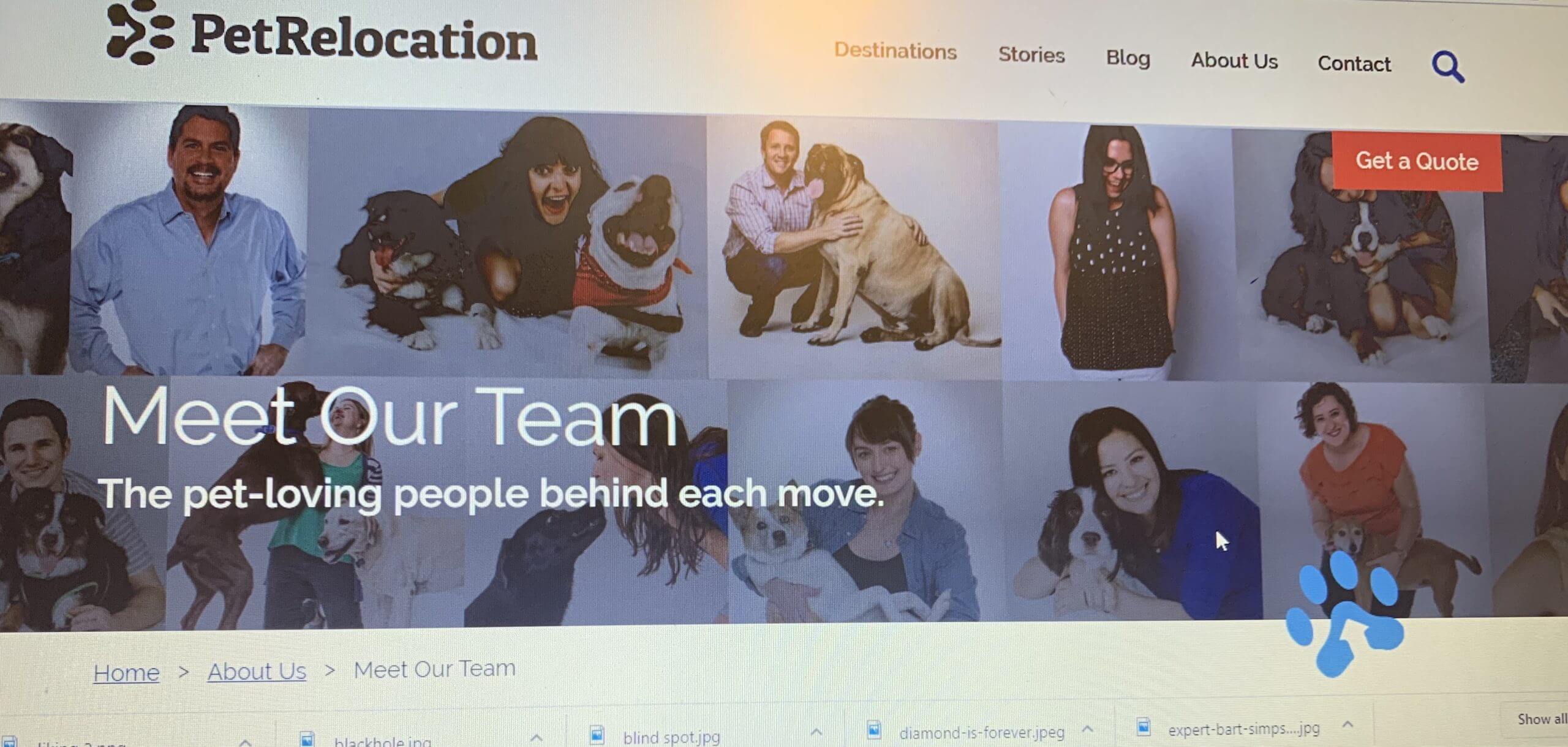Reading Time :5 Minutes
What You May Know :
The people you like impact your choices in life.
You can visit a website named PetRelocation. They help pet owners all over the world move their pets from one country to the other.

If you visit their “Our Team” page, it is full of staff bios, and every bio emphasizes not only the staff’s love of dogs, but also humanizes managers and employees . The tagline says ’ The pet-loving people behind each move’ – this is very important positioning as most of the pet lovers treat their pets as their family members and they’re sensitive about the fact that their pet is given love & care by everyone.
By this page, the company is trying itself to make itself likeable . Company is trying to convey –‘ you love pets, we also love pets’ , ‘we only employ those people who love pets’
The effort increased the company’s likeability, which in turn improved the conversion rate of website visitors.
The company here is trying to take the benefit of another black hole of humans – Liking – an automatic behaviour pattern.
We prefer to agree to requests from people we like more than from people you don’t like.
Think about it?
And which kind of people we like?
We like those people who tend to have the same beliefs, interests, and language as we do. So the mind tends to believe that a person we like is trustworthy, otherwise, why would we like them at all?
Can you say no to a good person, a person who is so similar to you?
One way people exploit this is to find ways to make themselves like you.
And people try to find similarities to establish a rapport, to make that initial connect and relationship, as it we tend to like those people who like the same things that we like.
Do you like chess? Me too.
Do you like that book? Me too.
Oh you worship Sai Baba! Me too.
(be careful this is applicable only in those areas where likes are not so common . It does not work in those everyone likes someone or something.)
Although often these are genuine, sometimes they’re not. It is a double edged sword, it can be great for honest, respectable, decent people. But be careful, it can also work wonders for skilled & shrewd salesmen and someone who want to exploit your vulnerabilities.
Few examples:
How marketers (and you can) use this black hole?
You also like people more if they like you.
- Tell your customers that you love them
This is why, in USA, a person named Joe Girard, the world’s “greatest car salesman, sends every customer a holiday card with the message “I like you.”
And you know what, it works. People go back to him.
2. Advertisements using celebrities
The black hole of liking also explains why we trust word-of-mouth recommendations from our peers, as well as stuff endorsed by our favourite actors, sports-persons or celebrities.
3. Inbuilt tools in websites
That is why there are options of ‘share’ ,’like’ are there in almost all websites. If you like or share something , it is shown on your timeline and most of your friends are likely to watch or read something as it has been endorsed by you.
4. Compliments
Compliments also stimulate liking, and direct salespeople are trained in the use of praise. Indeed, even inaccurate praise may be effective
5. Show your positive side
For many companies, budget for marketing of their CSR activities is much higher than what is spent on those CSR activities.
These companies understand that people like the companies who help others, the companies which work for social cause. To exploit this sentiment and to be liked by their customers , many companies spend a little on CSR but spend more on marketing of their CSR activities so that their customer can notice it.
How to resist:
Calm down, give it a pause, think whether it is real, and think whether there’s some hidden motive involved .
You can learn about all these traps by clicking on the following links :
-What are the human behaviour traps & How marketers use them ?
-Trap 1- based on principle of reciprocity
-Trap 2 -based on the principle of scarcity
-Trap 3 -based on the principle of liking ( you’re here)
-Trap 4 -based on the principle of social-proof
-Trap 5- based on the principle of authority
-Trap 6 -based on the principle of commitment
Or






[…] -Trap 3 -based on the principle of liking […]
[…] -Trap 3 -based on the principle of liking […]
[…] -Trap 3 -based on the principle of liking […]
[…] -Trap 3 -based on the principle of liking […]
[…] -Trap 3 -based on the principle of liking […]